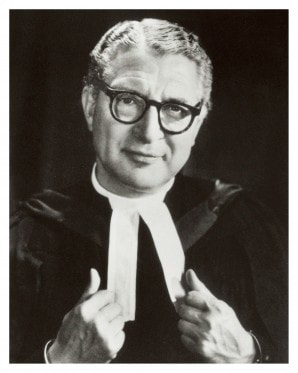|
Wecome to Logia, the personal blog of Paul Hartwig. Reflections and resources to enhance understanding of what God has revealed of himself in Scripture.
|
|
Words, said Samuel Johnson, are the clothes of thoughts. That said, there are two very important words help us take up and live in the world and the Word more faithfully and thus Christianly. The words are 'inductive imagination'. Here is my story...
It was about 4 years ago that whilst swimming in the local gym pool that I had my epiphany of inductive imagination. I realized that I was doing this length to clock up my 20 lengths to then change, go home, get my afternoon tasks done to finish the day to begin the next day finish that then finish the week get to Sunday and so begin on Monday again. I was not attentive or enjoying my length in the pool because i was 'using' it to clock up a total to then get on with the next thing. I was living in terms of quantity of time and not quality. Why did I have to define or interpret the present moment in terms of other things rather than just do the present on its own terms? (later, Eugene Peterson would borrow a phrase from a poem to describe how I was not living - 'every step an arrival'). I then got out of the pool and in the change rooms decided to stop and just look around and where I was an appreciate it and pay it the necessary attention, as apparently insignificant as my surroundings where. Well, that time at the gym initiated (or maybe established) me into a more self-conscious way of living, the way of 'inductive imagination'. It is a 'method of life' which pays attention to the present and does not allow the forward flow of life to steal from the present. It is a way of living, loving, serving, reading, praying, and serving that loving takes up the present period and appreciates what God has done here and now. It resists the modern way of living where we are so busy getting ahead that we do not thankfully and humbly enjoy what is under our noses. It is resisting the desire to put the next tasty chip into your mouth so that you can thankfully savour the one that is already there. Have you discovered inductive imagination?
0 Comments
In recently reading C S Lewis' last book Letters to Malcolm Chiefly on Prayer we were struck at his description of how terrible it must be for anyone to be ignored by God. Here is how Lewis put it:
"We can bear to be refused but not to be ignored. In other words, our faith can survive many refusals if they really are refusals and not mere disregards. The apparent stone will be bread to us if we believe that a Father's hand put it into ours, in mercy or in justice or even in rebuke. It is hard and bitter, yet it can be chewed and swallowed. But if, having prayed for our heart's desire and got it, we then become convinced that this was a mere accident - that providential designs which had only some quite different end just couldn't help throwing out this satisfaction for us as a by-product - then the apparent bread would become a stone. A pretty stone, perhaps, or even a precious stone. But not edible to the soul." How much more dreadful it must be to be ignored by God than for Him to not exit at all. How wonderful the opportunity we have to come to a good Father through the Lord Jesus Christ! You can get His full loving attention today, as you come to Him through Jesus Christ who is the only Way. ADVICE ON READING by Richard Baxter (1615-1691)
"Make careful choice of the books which you read: let the Holy Scriptures ever have the pre-eminence, and, next to them, those solid, lively, heavenly treatises which best expound and apply the Scriptures, and next, credible histories, especially of the Church . . . but take heed of false teachers who would corrupt your understandings." 1. As there is a more excellent appearance of the Spirit of God in the Holy Scripture, than in any other book whatever, so it has more power and fitness to convey the Spirit, and make us spiritual, by imprinting itself upon our hearts. As there is more of God in it, so it will acquaint us more with God, and bring us nearer Him, and make the reader more reverent, serious and divine. Let Scripture be first and most in your hearts and hands and other books be used as subservient to it. The endeavours of the devil and papists to keep it from you, doth shew that it is most necessary and desirable to you. 2. The writings of divines are nothing else but a preaching of the gospel to the eye, as the voice preaches it to the ear. Vocal preaching has the pre-eminence in moving the affections, and being diversified according to the state of the congregation which attend it: this way the milk comes warmest from the breast. But books have the advantage in many other respects: you may read an able preacher when you have but an average one to hear. Every congregation cannot hear the most judicious or powerful preachers: but every single person may read the books of the most powerful and judicious; preachers may be silenced or banished, when books may be at hand: books may be kept at a smaller charge than preachers: we may choose books which treat of that, very subject which we desire to hear of; but we cannot choose what subject the preacher shall treat of. Books we may have at hand every day, and hour; when we can have sermons but seldom, and at set times. If sermons be forgotten, they are gone; but a book we may read over and over, till we remember it: and if we forget it, may again peruse it at our pleasure, or at our leisure. So that good books are a very great mercy to the world: the Holy Ghost chose the way of writing, to preserve His doctrine and laws to the Church as knowing how easy and sure a way it is of keeping it safe to all generations, in comparison of mere verbal traditions. 3. You have need of a judicious teacher at hand, to direct you what books to use or to refuse: for among good books there are some very good that are sound and lively; and some good, but mediocre, and weak and somewhat dull; and some are very good in part, but have mixtures of error, or else of incautious, injudicious expressions, fitter to puzzle than edify the weak. BAXTER’S GUIDE TO THE VALUE OF A BOOK While reading ask oneself: 1. Could I spend this time no better? 2. Are there better books that would edify me more? 3. Are the lovers of such a book as this the greatest lovers of the Book of God and of a holy life? 4. Does this book increase my love to the Word of God, kill my sin, and prepare me for the life to come? One of the most important ways in which a Christian is called to learn is by listening to the Scriptures. This is particularly hard for us because most of us are very poor listeners. Yet we must cultivate this art if we are going to love the Scriptures (and people too). C S Lewis was a faithful guide in this art. Listen to the following words of his on Art Appreciation - and then go and do likewise with Scripture:
"We must look, and go on looking, till we have certainly seen exactly what is there. We sit down before the picture in order to have something done to us, not that we may do things with it. The first demand any work of art makes upon us is surrender. Look. Listen. Receive. Get yourself out of the way”. "Pay close attention to your life and to the doctrine. Persevere in them, because if you do, you will save both yourself and your hearers" (apostle Paul to young Timothy, 1T4:16)
'Salvation' is the master idea in the Bible. It is its biggest and most comprehensive word. It is a wonderful word! Yet what our minds think it means is not always what the Scriptures mean by it. I believe that a faithful approximation of this Biblical term (taken from the story of Creation and the story of the Exodus) should run like this: Salvation is that comprehensive work of the triune God, authored by the Father, accomplished by the Son, applied by the Spirit, whereby he takes his ruined image bearers out of sin and into service for the extension of his glory in the universe. The amazing thing about what Paul says to Timothy is the glorious and sobering conjunction between that salvation-work and Timothy. If Timothy lives a godly life and feeds on the sound Scriptural doctrine he learned from his grandmother, mother and later Paul, then he will mediate this grand salvation work into his own life and into the lives of those who hear. The implication of this is that we neglect godliness and doctrine at a great peril to both ourselves and our hearers. So, why go to a Seminary or Bible College? I simply answer: To better fulfill this verse. Many good institutions offer conditions whereby you can be further trained in godly lifestyle and sound doctrine. Seminary is of course not essential for this, but the conditions Paul gives are. Exercise yourself in godliness and nourish yourself on sound doctrine, for in doing this you will reap benefit in all things - both for all things in this life and in all things in the next life (1 Tim 4:8.) Who would not want that!  Methodist W E Sangster (1900-1960) wrote book on Christian holiness called The Pure in Heart: A Study in Christian Sancity (1955; London: The Epworth Press). I was glad to find that the important insights of John Piper and his 'Christian Hedonism' are also reflected in the follow practical illustration: "That pure a altruism is a moral absurdity, as grave, though by no means as common, as pure egotism, can be shown in an illustration. Here are two men, neither of whom falls in love but each of whom marries a nurse: one is a pure egotist, and the other a pure altruist. The first one marries the nurse, because, knowing his own family health record, he fears that some day he will be an invalid and he wants her tied to him that he may benefit by her professional skill. 'What a bounder!' the average man would say. 'What a low motive for getting wed!' But look at the pure altruist! He marries the girl, not because he loves her (there is no taint of self about him): he marries her because he thinks nobody else will, and life will be very lonely for her as time goes by, and the day comes when she can nurse no more. Moreover, he thinks that living with her will give him many opportunities for self-abnegation.... Will that please the girl? If she knew his real heart, would she wed? Is it not obvious that both fail? - and does not that last illustration give us the clue that we are seeking? There is happiness for the girl only in the knowledge that, in getting the man she loves, she is giving happiness. You cannot separate yourself from others. God make us members one of another and to take ourselves out of the family either by the high road of 'pure' altruism, or the low road of sheer egotism, lands us in absurdity at the end" (page 230) |
Categories
All
Archives
May 2023
|






